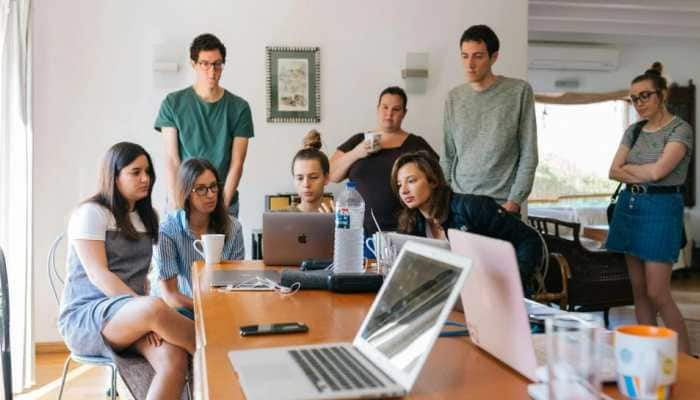Governments Vs Bloggers
Besides terrorism, what is terrorising repressive governments across the world these days? Undoubtedly, it is the Internet.
Trending Photos
)
 Kamna Arora
Besides terrorism, what is terrorising repressive governments across the world these days? Undoubtedly, it is the Internet. The threat of online criticism can be gauged by the fact that of late, governments of Southeast Asian countries have been trying hard to censor the Internet, or saying off the cuff, crushing people’s voices.
As the number of Internet users is growing in almost all the countries across the world, many governments are attempting to regulate access to any content that might destabilise their own control.
The freedom of expression has got another medium in the form of Internet. For the hoi polloi in free countries like India and the US, the mediums of political expression are many. They can participate in TV debates, send their opinions in Letters to the Editor section of any newspaper, and post their views on any website. And of course, the Internet has proved to be an easy and convenient tool to express views on policies drafted by the governments and criticise or praise leaders, among many other things. In toto, Internet ensures an open debate on varied issues ranging from politics and economy to entertainment.
In countries where people are not allowed to speak against their authoritarian governments, Internet is proving to be their voice. Where media is not allowed, the Internet helps the throttled to speak out to the international community through blogs. And this is what is bothering the governments in Southeast Asia, the Middle East and North Africa.
Internet is helping sufferers of a country to reach out to the world and reveal the horrors they are facing in their territories. One can easily post videos on YouTube, send messages on Facebook, get connected with anyone in the world through Twitter, or post blogs on websites and express conflicting views, criticise governments, express opinions. Authoritarian governments are obviously not liking the content, as it conflicts with their views, or reveals the real human rights situation, or talks about freedom of expression and separatist movements.
After social censorships, the repressive governments have now begun censoring social networking sites, which help people across the world engage with each other. The Internet has somewhat become a headache for countries like Vietnam, Thailand, Malaysia, Myanmar, China, Cuba, Saudi Arabia, the United Arab Emirates, Bahrain, Iran, Syria and Tunisia, to name a few.
Recently, China tried to block pictures of Xinjiang riots and Iran attempted to bar details of protests in the wake of presidential elections by jamming social networking websites such as Twitter and Facebook.
These regimes are trying hard to stop people from raising their voice through the Internet by arresting some bloggers and blocking websites. Of late, Vietnamese authorities detained three bloggers for “national security reasons”, but released them later. Notably, all three of them had voiced criticism against Vietnam`s China-related policies. They had also reportedly planned to produce anti-China T-shirts.
According to analysts, the Vietnamese authorities want to stop blogs from becoming a news source.
"Cyberspace represents a more formidable challenge because anonymous citizens can post their views and exchange ideas with others both inside and outside Vietnam," says Vietnam analyst, Carlyle Thayer, from the Australian Defence Force Academy.
Malaysia uses its draconian Internal Security Act to suppress bloggers. The authorities in Thailand are trying to muzzle bloggers with the help of its Computer Crimes Act.
According to Roby Alampay, executive director of a Bangkok-based media advocacy group, the Southeast Asia Press Alliance, “A number of governments in the region (Southeast Asia) have discovered they can`t use technology alone to block out dissent because people will always find a way around it. Instead they are trying to send out the message that the government is watching what their citizens are up to, and many of these arrests are deliberately high-profile."
China is one country in the world which has technology to police the Internet. Of late, it has become mandatory for new users of news websites to register their true identities before posting comments. It has got the most sophisticated Internet monitoring and censorship system in the world.
The Chinese regime has spent huge amounts of money to build the "Great Firewall of China". Internet censorship has been helping China in hiding its true approach to crush protests emanating in Tibet. According to reports, China has bought the sophisticated software required to run its filtering system from some US-based computer software companies. It is amazing to note that China has made it mandatory for Internet Service Providers (ISPs) within the country to keep an eye on their own websites to avert any "dangerous content".
A report in the BBC claims that every ISP in China has its own staff of "web police". Besides this, the Chinese government has employed staff to continuously scrutinise the Chinese web, blocking any site or blog that is considered seditious. The efficiency of its web policing machinery was most on display during Beijing Olympics. Not just that, China has also made Internet a weapon to launch cyber wars, especially against US. Not only has its penetrated US confidential files through the net, it also uses spam to corrupt websites in countries like the US and India.
So while it is interesting to see how people across the world are using the Internet to spread information, and as a means of expression, and to instil activism, it is equally disturbing to observe how the authoritarian regimes are making efforts to misuse or crush this medium of expression in this era of superfast technologies.
Kamna Arora
Besides terrorism, what is terrorising repressive governments across the world these days? Undoubtedly, it is the Internet. The threat of online criticism can be gauged by the fact that of late, governments of Southeast Asian countries have been trying hard to censor the Internet, or saying off the cuff, crushing people’s voices.
As the number of Internet users is growing in almost all the countries across the world, many governments are attempting to regulate access to any content that might destabilise their own control.
The freedom of expression has got another medium in the form of Internet. For the hoi polloi in free countries like India and the US, the mediums of political expression are many. They can participate in TV debates, send their opinions in Letters to the Editor section of any newspaper, and post their views on any website. And of course, the Internet has proved to be an easy and convenient tool to express views on policies drafted by the governments and criticise or praise leaders, among many other things. In toto, Internet ensures an open debate on varied issues ranging from politics and economy to entertainment.
In countries where people are not allowed to speak against their authoritarian governments, Internet is proving to be their voice. Where media is not allowed, the Internet helps the throttled to speak out to the international community through blogs. And this is what is bothering the governments in Southeast Asia, the Middle East and North Africa.
Internet is helping sufferers of a country to reach out to the world and reveal the horrors they are facing in their territories. One can easily post videos on YouTube, send messages on Facebook, get connected with anyone in the world through Twitter, or post blogs on websites and express conflicting views, criticise governments, express opinions. Authoritarian governments are obviously not liking the content, as it conflicts with their views, or reveals the real human rights situation, or talks about freedom of expression and separatist movements.
After social censorships, the repressive governments have now begun censoring social networking sites, which help people across the world engage with each other. The Internet has somewhat become a headache for countries like Vietnam, Thailand, Malaysia, Myanmar, China, Cuba, Saudi Arabia, the United Arab Emirates, Bahrain, Iran, Syria and Tunisia, to name a few.
Recently, China tried to block pictures of Xinjiang riots and Iran attempted to bar details of protests in the wake of presidential elections by jamming social networking websites such as Twitter and Facebook.
These regimes are trying hard to stop people from raising their voice through the Internet by arresting some bloggers and blocking websites. Of late, Vietnamese authorities detained three bloggers for “national security reasons”, but released them later. Notably, all three of them had voiced criticism against Vietnam`s China-related policies. They had also reportedly planned to produce anti-China T-shirts.
According to analysts, the Vietnamese authorities want to stop blogs from becoming a news source.
"Cyberspace represents a more formidable challenge because anonymous citizens can post their views and exchange ideas with others both inside and outside Vietnam," says Vietnam analyst, Carlyle Thayer, from the Australian Defence Force Academy.
Malaysia uses its draconian Internal Security Act to suppress bloggers. The authorities in Thailand are trying to muzzle bloggers with the help of its Computer Crimes Act.
According to Roby Alampay, executive director of a Bangkok-based media advocacy group, the Southeast Asia Press Alliance, “A number of governments in the region (Southeast Asia) have discovered they can`t use technology alone to block out dissent because people will always find a way around it. Instead they are trying to send out the message that the government is watching what their citizens are up to, and many of these arrests are deliberately high-profile."
China is one country in the world which has technology to police the Internet. Of late, it has become mandatory for new users of news websites to register their true identities before posting comments. It has got the most sophisticated Internet monitoring and censorship system in the world.
The Chinese regime has spent huge amounts of money to build the "Great Firewall of China". Internet censorship has been helping China in hiding its true approach to crush protests emanating in Tibet. According to reports, China has bought the sophisticated software required to run its filtering system from some US-based computer software companies. It is amazing to note that China has made it mandatory for Internet Service Providers (ISPs) within the country to keep an eye on their own websites to avert any "dangerous content".
A report in the BBC claims that every ISP in China has its own staff of "web police". Besides this, the Chinese government has employed staff to continuously scrutinise the Chinese web, blocking any site or blog that is considered seditious. The efficiency of its web policing machinery was most on display during Beijing Olympics. Not just that, China has also made Internet a weapon to launch cyber wars, especially against US. Not only has its penetrated US confidential files through the net, it also uses spam to corrupt websites in countries like the US and India.
So while it is interesting to see how people across the world are using the Internet to spread information, and as a means of expression, and to instil activism, it is equally disturbing to observe how the authoritarian regimes are making efforts to misuse or crush this medium of expression in this era of superfast technologies.







)
)
)
)
)
)
)
)
)
)
